Hey team! I wanted to take a moment to sincerely apologize for my recent oversight that may have impacted our workflow. I appreciate each of you for your hard work, and I recognize that my actions may have caused frustration. Let's turn this around together and improve our communication moving forward. I invite you to read on for some suggestions on how we can enhance our collaboration as a team!
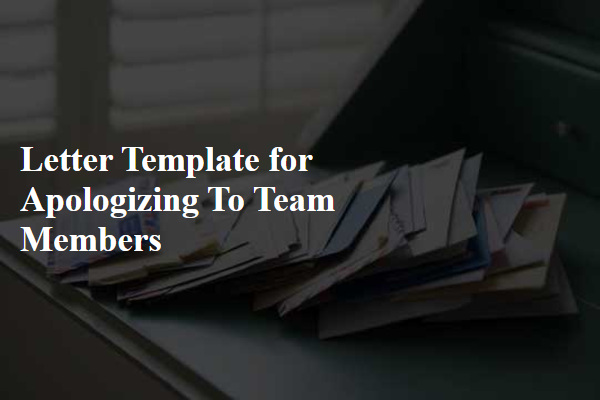
Acknowledgment of the mistake or issue.
Acknowledgment of the mistake or issue is a crucial step in effective communication and team dynamics. Recognizing errors ensures transparency and fosters trust among team members. For instance, acknowledging the miscommunication surrounding project deadlines can alleviate frustration. This practice promotes a culture of accountability, where individuals feel empowered to admit faults, such as delays in delivering on commitments. Openly discussing issues like resource allocation can lead to collaborative problem-solving. Furthermore, addressing unforeseen challenges, such as budget constraints, allows the team to strategize solutions together, reinforcing a collective commitment to achieving shared goals.
Expression of genuine remorse and empathy.
Promptly addressing team dynamics fosters a positive environment for collaboration. Acknowledgement of mistakes made in communication or project execution can significantly enhance relationships among colleagues. Sincere expressions of regret combined with authentic empathy create a foundation for rebuilding trust. Personalizing apologies by referencing specific incidents or actions impacts the effectiveness of the message. Furthermore, outlining steps for improvement not only demonstrates accountability but also assures team members of a commitment to fostering a supportive workplace culture. Ultimately, recognizing the feelings and contributions of each team member empowers collective growth and strengthens the team's synergy.
Explanation of the steps taken to rectify the situation.
When a project deadline is missed, team members may feel frustrated and overwhelmed. Acknowledging this issue is essential for team cohesion. Steps to rectify the situation include creating a revised timeline that incorporates all tasks with specific deadlines. Communicating openly about challenges faced during the original timeline ensures transparency. Implementing weekly check-in meetings allows for progress tracking and immediate problem-solving. Providing additional resources, such as training or support, may be necessary to boost team confidence and efficiency. Encouraging team members to share feedback strengthens collaboration and fosters a positive work environment.
Commitment to prevent recurrence in the future.
In the realm of team dynamics, addressing shortcomings is crucial for maintaining harmony and productivity. A recent oversight during project Alpha, which took place in September 2023, led to miscommunication and unnecessary frustration among team members in our New York office. This incident highlighted lapses in our internal communication protocols, impacting project deadlines. A commitment to preventing recurrence involves implementing regular check-in meetings, enhancing clarity in project timelines, and fostering an environment of open dialogue. By reinforcing these strategies, we aim to restore trust and encourage collaboration within our diverse team of professionals. Our goal is to ensure that all voices are heard, and potential issues are addressed proactively, paving the way for a more cohesive and efficient work environment.
Offer to discuss further and provide feedback channels.
Apologizing to team members requires a thoughtful approach. An effective apology acknowledges specific issues that occurred during the project, such as unmet deadlines or miscommunication, which might have caused frustration or confusion. Expressing regret over the impact of these issues on team dynamics highlights the importance of collaboration and shared goals. Mentioning opportunities for open discussion is crucial, as it encourages team members to voice their feelings or suggestions. Proposing feedback channels, such as anonymous surveys or one-on-one meetings, can facilitate a constructive dialogue and reinforce a culture of continuous improvement. This approach fosters trust and shows commitment to rectifying the situation.
Letter Template For Apologizing To Team Members Samples
Letter template of sincere apology to team members for missed deadlines.
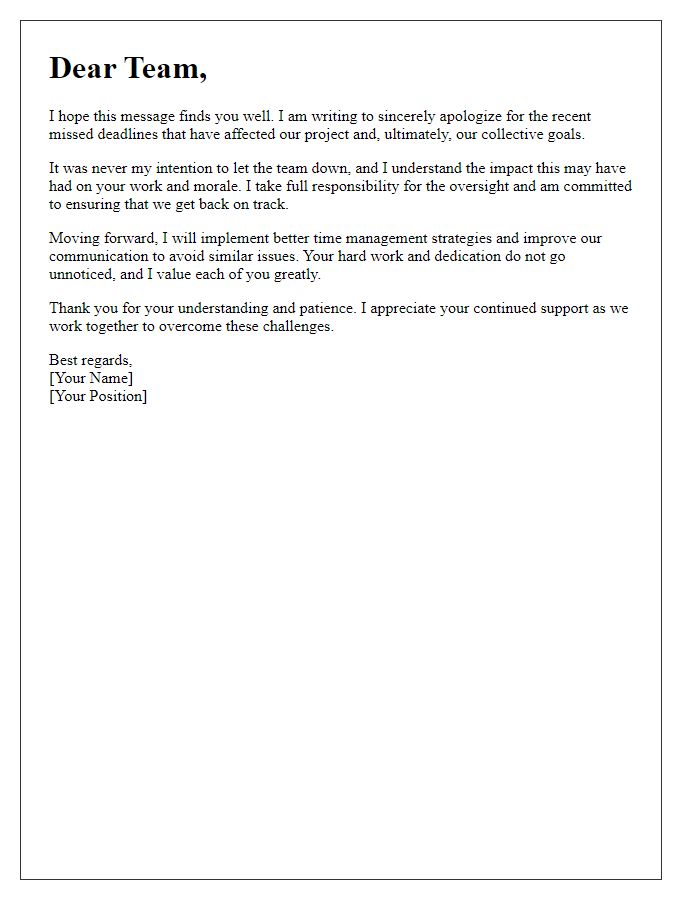
Letter template of heartfelt apology to colleagues for communication breakdown.
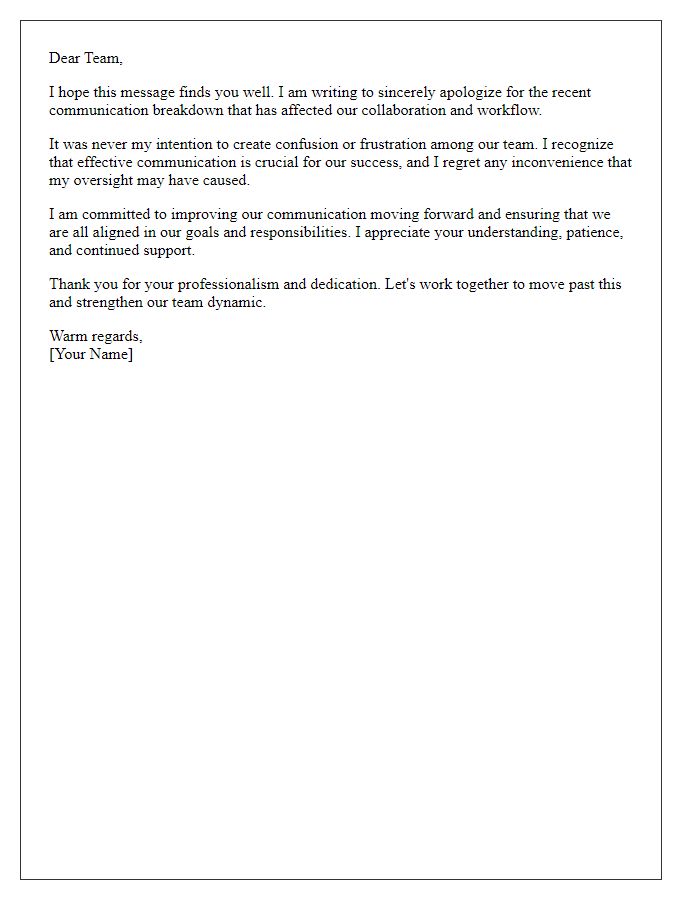
Letter template of regretful apology to team for not meeting expectations.
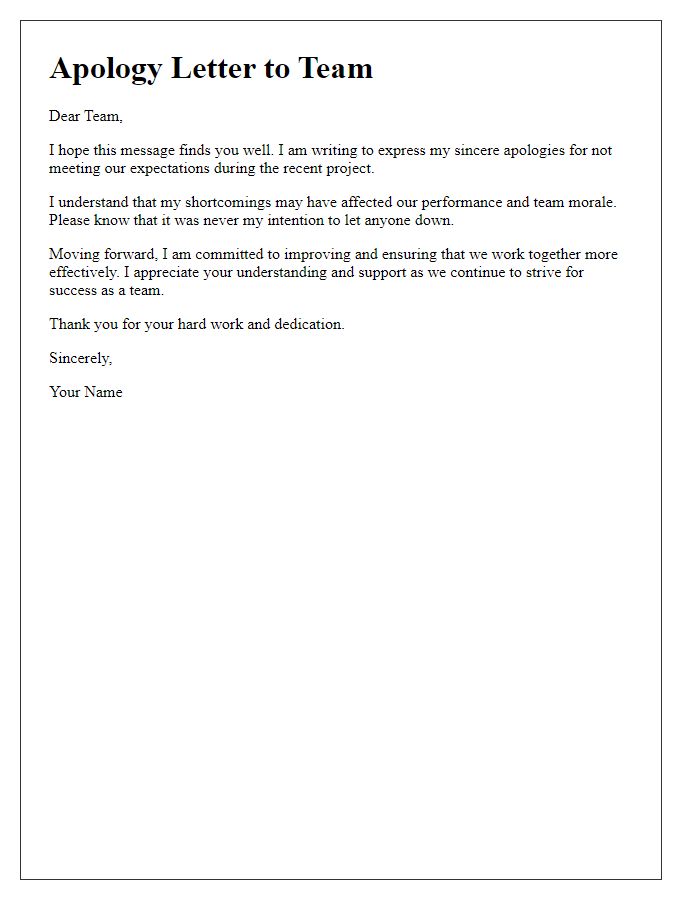
Letter template of formal apology to staff for oversight in project planning.
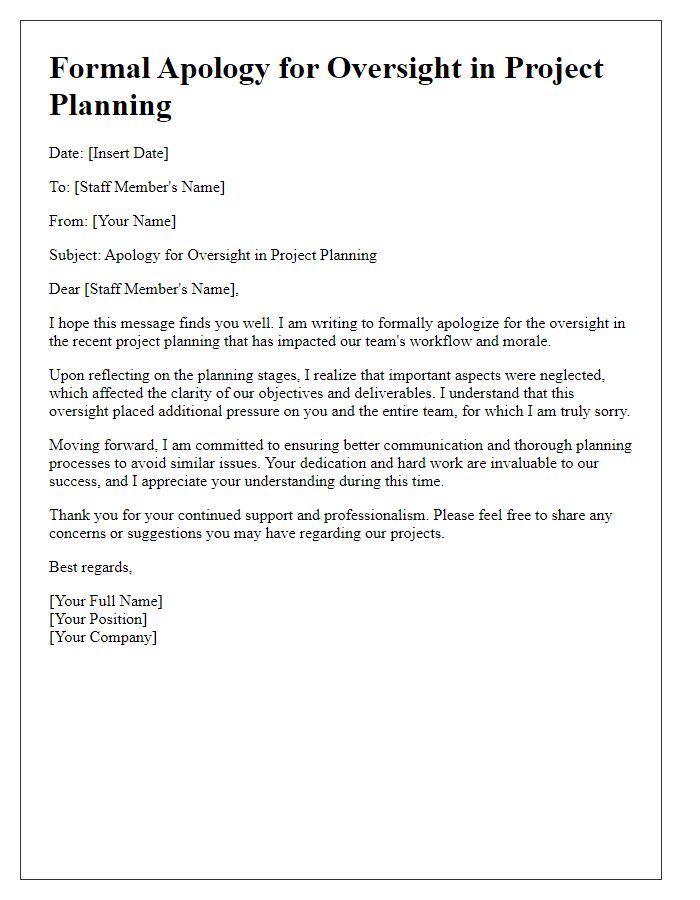
Letter template of personal apology to team for any unintentional mistakes.
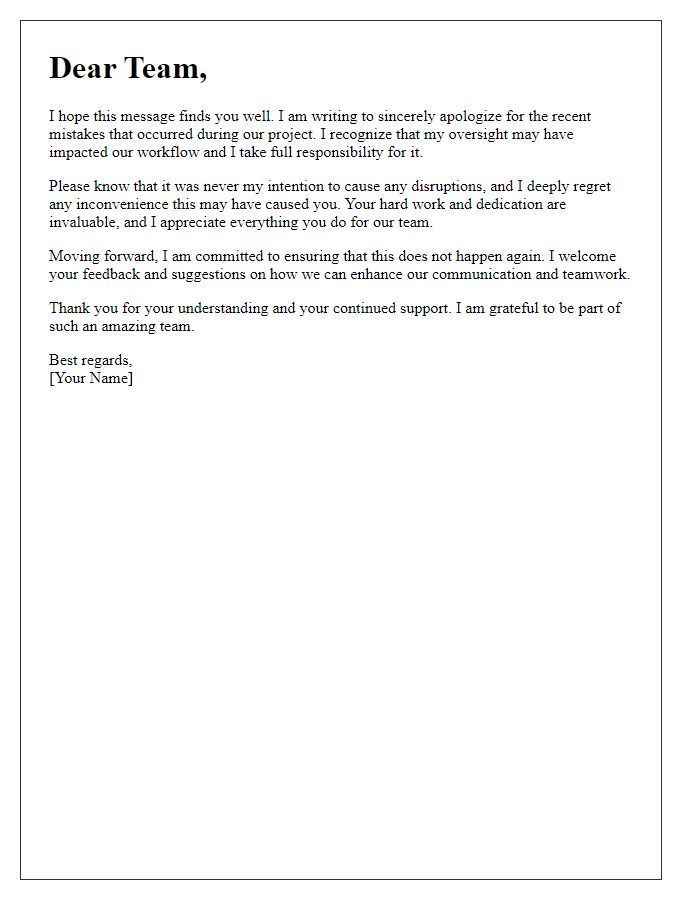
Letter template of transparent apology to coworkers for poor leadership.
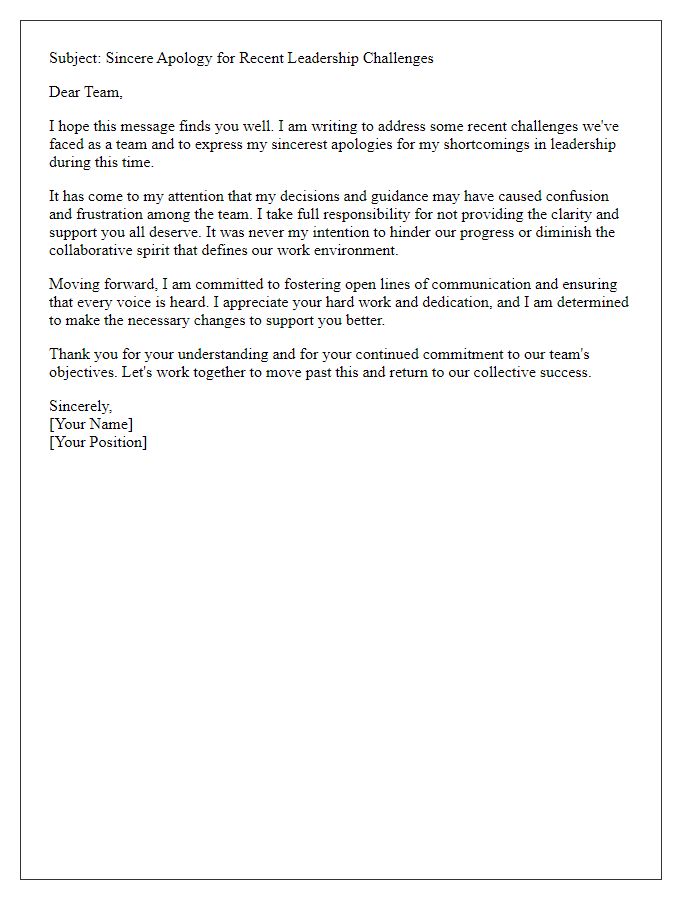
Letter template of compassionate apology to teammates for recent conflicts.
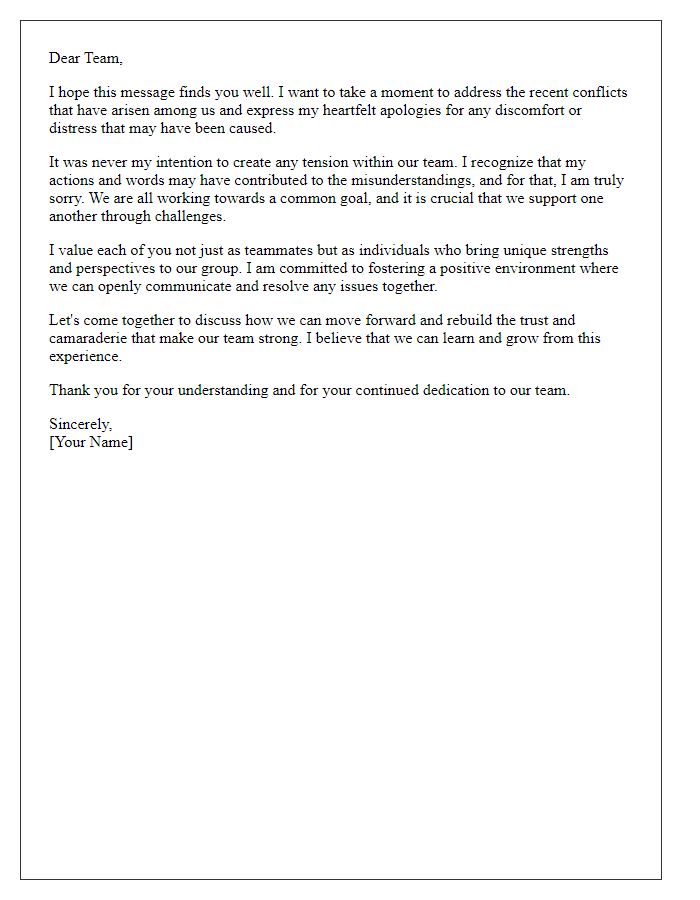
Letter template of constructive apology to team for misalignment in goals.
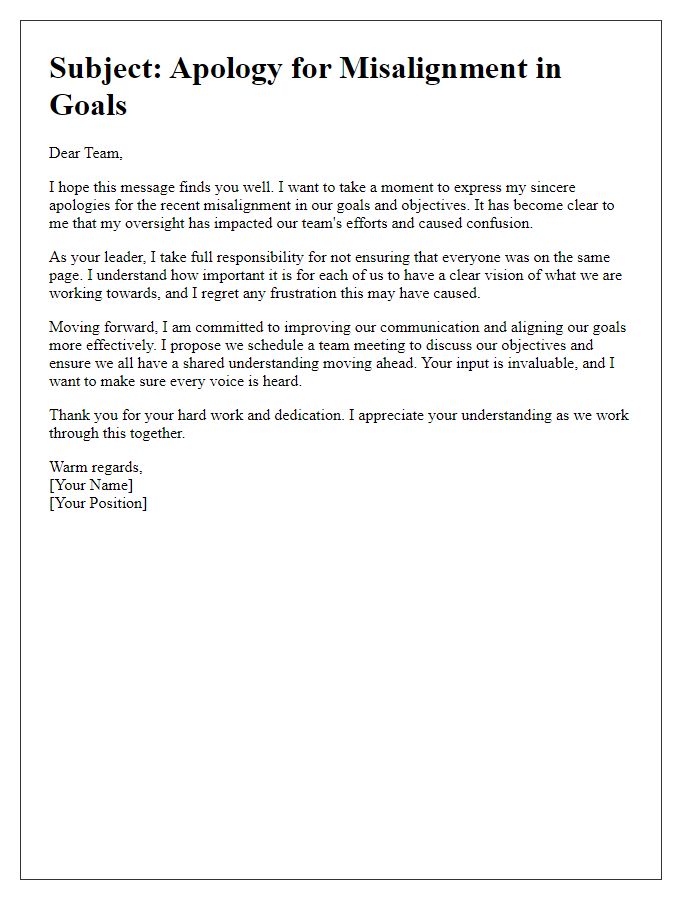

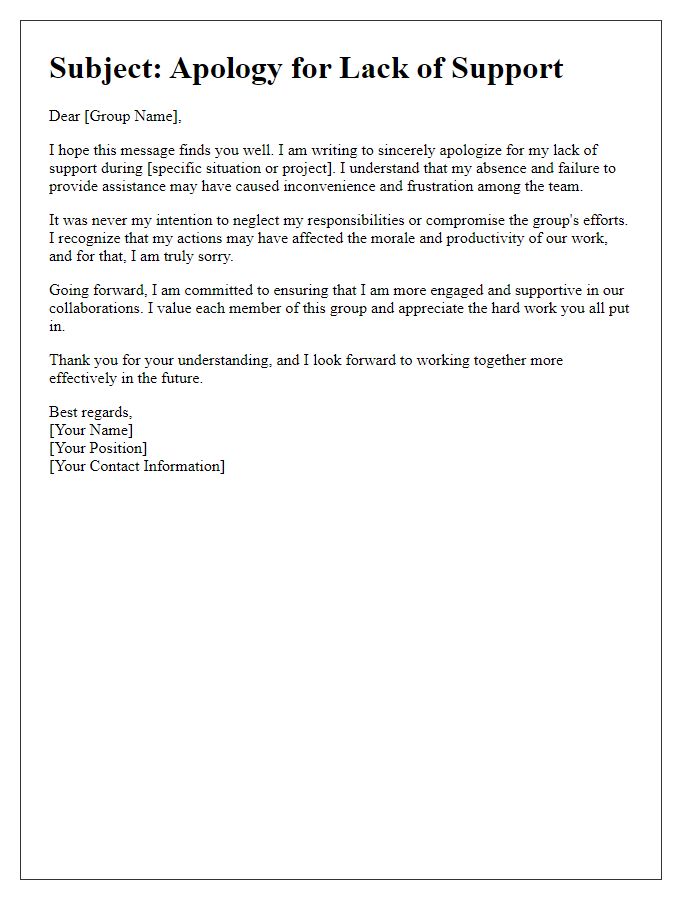
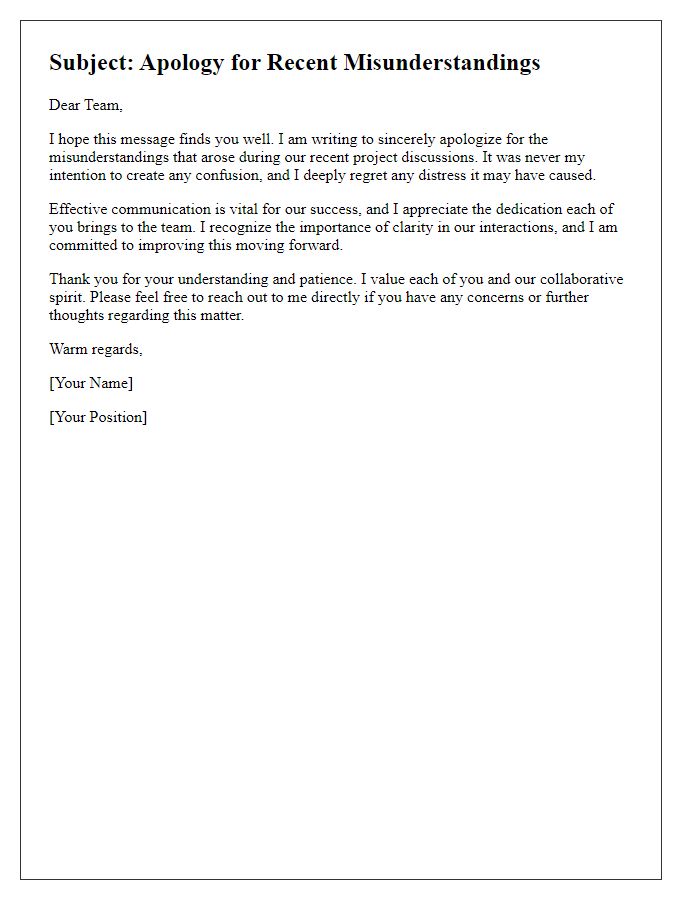


Comments